Jacques Delors: EU heavyweight whose ideas faced stiff opposition
- Published
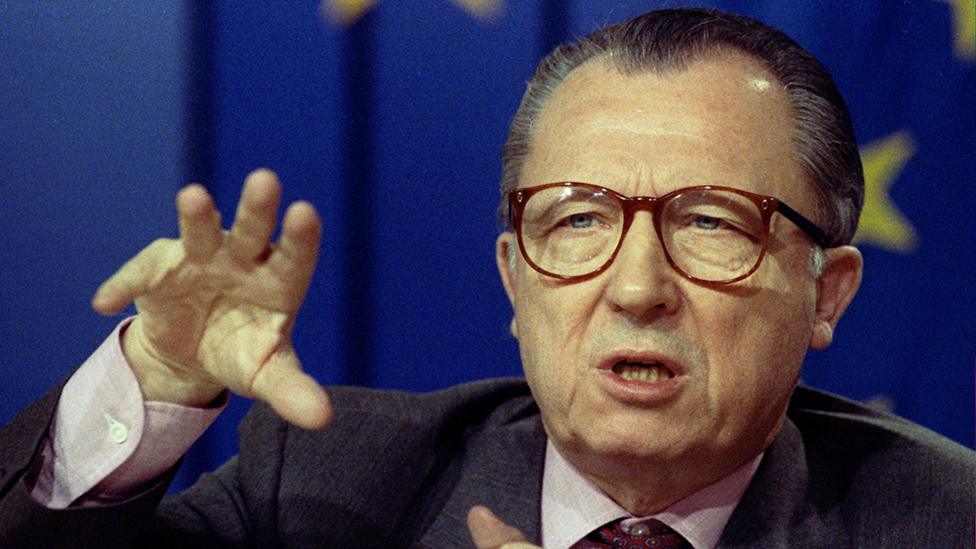
Jacques Delors, who has died at the age of 98, was the architect of the modern European Union.
As president of the EU's executive branch - the European Commission - from 1985 to 1995, he was the high priest of "ever closer union" - including the adoption of the single market and the creation of the euro.
His ideas faced stiff opposition in the UK from Margaret Thatcher, John Major and the British press - which saw him as a modern-day Charlemagne, bent on the political union of Europe.
And he lived long enough to see the UK break with his European project altogether, in the Brexit referendum in 2016.
Committed Socialist
Jacques Lucien Jean Delors was born near the Place de la Bastille in the centre of Paris on 20th July 1925.
The political views of his extended family ranged from ardently socialist to vehemently communist. His father was a left-leaning socialist usher at the Banque de France. Having been badly injured during World War One, he was also a committed pacifist.
The young Jacques' education was constantly interrupted by World War Two, as the family moved constantly.
He took up a place at the University of Strasbourg shortly after the German invasion, but was soon detained by the occupying troops.
Fearing that the Nazis would send him abroad as a forced labourer, he decided to delay his student career.
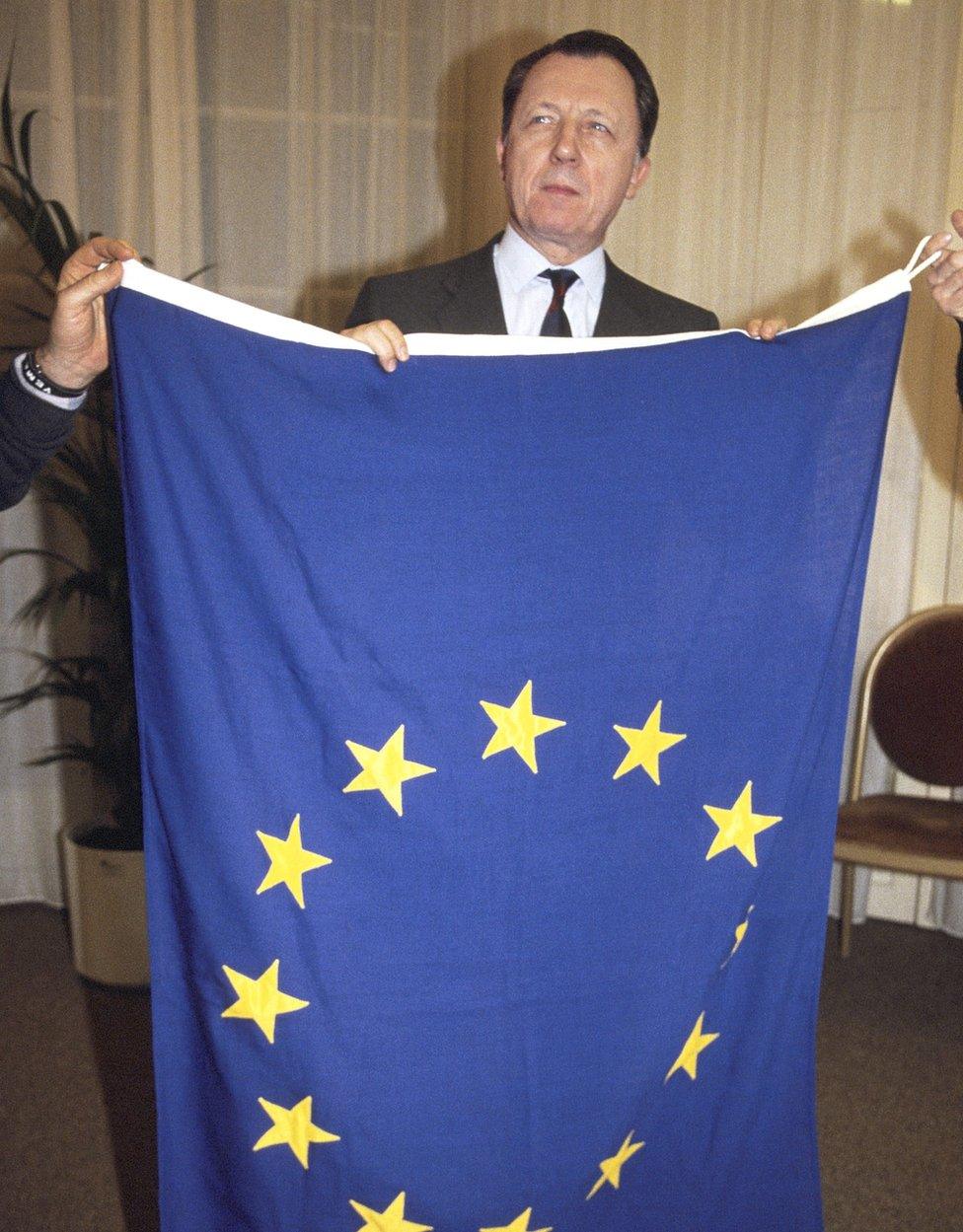
Jacques Delors was the architect of the modern European Union
When his family returned to Paris in 1944, a reluctant Delors was persuaded to follow his father in joining the Banque de France.
He passed an examination for the organisation's executive stream, and a career in finance took off.
Delors and his wife Marie became involved in the Catholic trade union movement, which was hugely influential in France.
Neither believed that religious faith should be requirement for membership of such an organisation, and they campaigned for it to be a more secular body.
The union asked him to work with the French government in fostering links between employers and workers. After the upheavals of May 1968, ministers looked at his ideas for negotiation and greater co-operation, and asked Delors to join them.
Delors was made chief adviser on social and cultural affairs to the Conservative Prime Minister, Jacques Chaban-Delmas, in 1969.
He joined the Socialist party in 1971, but both the left-wing François Mitterrand and the conservative Valéry Giscard d' Estaing asked him to join them three years later.
Delors was said to enjoy being regarded as right-wing by the Socialists and left-wing by the Gaullists.
He spent two years as mayor of Clichy in Paris's northern suburbs and then, in 1979, was put on the Socialist party's list for the first direct elections to the European Parliament.
Delors' position on the list was so low that he did not expect to succeed. But, having gained a seat on the back of unexpectedly good results, he was immediately selected to chair the parliament's Economic and Monetary Affairs Committee.
Finance minister
In 1981, François Mitterrand's victory in the presidential election represented a watershed in French politics.
Unable to resist a summons to join the first Socialist government of the Fifth Republic, Jacques Delors became Minister of Finance.
His time in office turned out to be a daily battle to control public debt and inflation. His attempts to deliver on Mitterrand's campaign promises were hampered by a weak franc and the constant threat of devaluation.
Eventually, he declined Mitterrand's offer of the role of prime minister in favour of the job he really wanted: president of the European Commission.
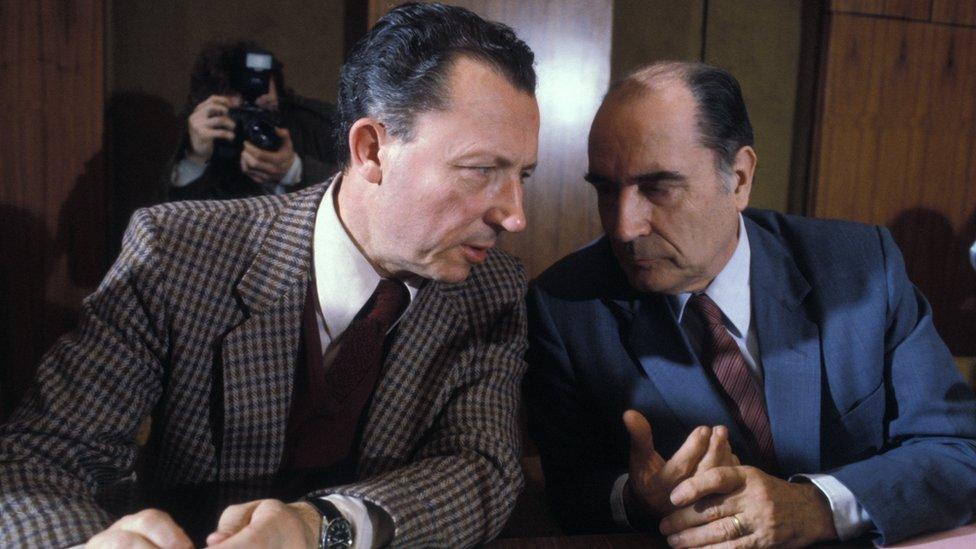
Jacques Delors with President François Mitterrand in 1981
In his first speech to the European Parliament, Delors insisted that European integration was not just a political concept, but an ideal. The chief practical reason for its existence, he said, was to guarantee peace across the continent.
Under its new leader, what was then the European Community faced enormous challenges including the end of the Cold War, German reunification, and war in the former Yugoslavia.
Membership of the organisation was also expanding fast, with Portugal, Spain, Austria, Finland and Sweden all joining.
Having taken office in 1985, Delors' first four-year term in Brussels saw an acceleration of plans for a single European market, free from barriers to the movement of goods, labour and investment.
The idea was not new - it dated from the 1957 Treaty of Rome - but his unceasing advocacy of the idea, coupled with an economic recovery in Europe and a renegotiated budgetary framework, reinvigorated what had been an idea on the backburner.
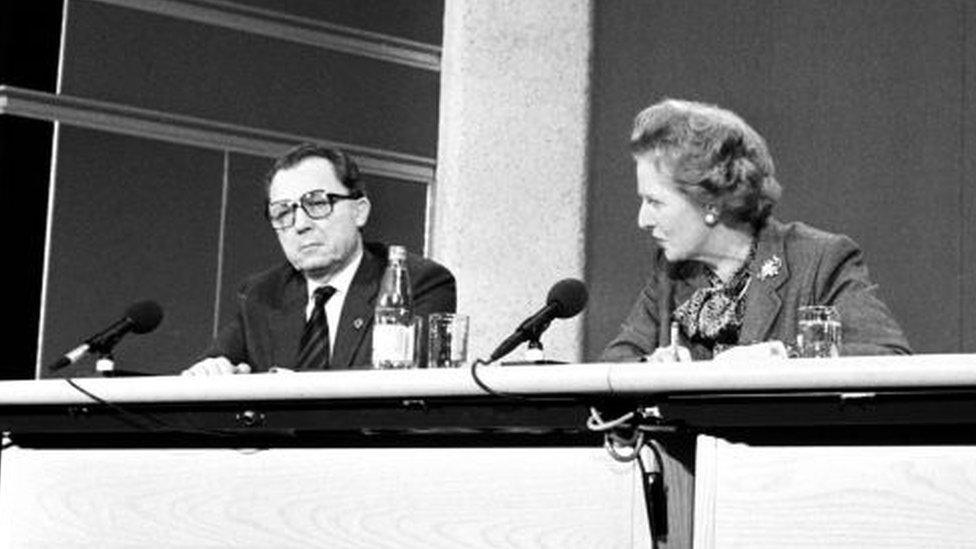
Sharing a platform with Margaret Thatcher in 1986
No borders
The resulting 1987 Single European Act committed member states to scrapping internal trade barriers by 1993.
It ensured a second term for Delors as president, during which time he tirelessly worked to bring about the Maastricht Treaty - which created both the euro and the modern European Union.
He was convinced that Europe had to create a strong economic union - a market without borders - to compete with the United States and Japan.
In 1988, Delors predicted that within a decade the EC would make 80% of the economic and social decisions for a member nation.
He was also determined that Europe's single market would not be an unbridled capitalist one, like in the United States.
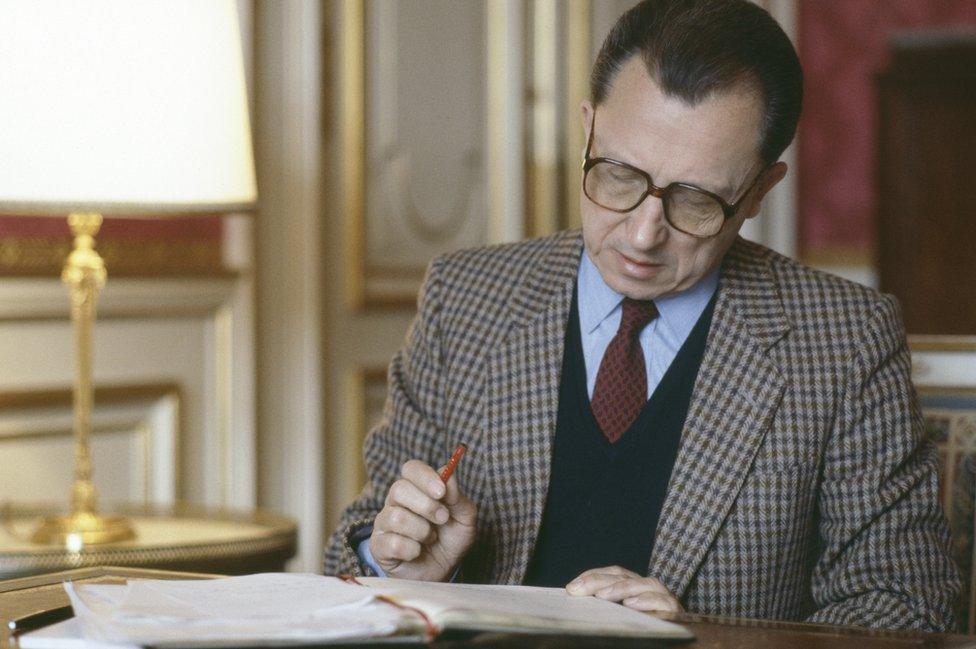
Jacques Delors was determined that the single market would have a strong social dimension
For Delors, any such market would need a strong social dimension and a powerful central government to ensure it.
Many on the continent embraced his ideas. But Mrs Thatcher called them absurd.
"A unified Europe," she said, "will never come in my lifetime and I hope never at all."
The Sun waded into the debate with a two-fingered salute on its front page, alongside a now legendary headline: Up Yours, Delors!
Compromised
In February 1992, Delors saw the Maastricht Treaty signed.
It did not complete his vision of a fully integrated Europe. The new UK Prime Minister, John Major, had negotiated an "opt-out" from the social dimension of the agreement and had no intention of joining the single currency.
But Delors had inherited a loose confederation of member states and within a decade turned it into something far more than that.
On the downside, he had to recognise that Maastricht had triggered a renewed debate between nations that wanted further integration and those that did not.
John Major's battle to get the treaty ratified all but destroyed the Conservative party. The people of Denmark voted no in a referendum and the French did say oui, but only by the narrowest of margins.
After leaving office in 1994, Jacques Delors decided not to run as Socialist Party candidate for the French presidency. Some polls suggested that he might win, but after weeks of reflection he declined - a decision he later described as one of the most difficult of his life.
Two decades later, he watched as his daughter Martine Aubry make a bid for the presidency, ultimately losing the Socialist party nomination to François Hollande. She later became mayor of Lille.
Out of office, he became president of the College of Europe in Bruges, continuing to influence the development of the EU.
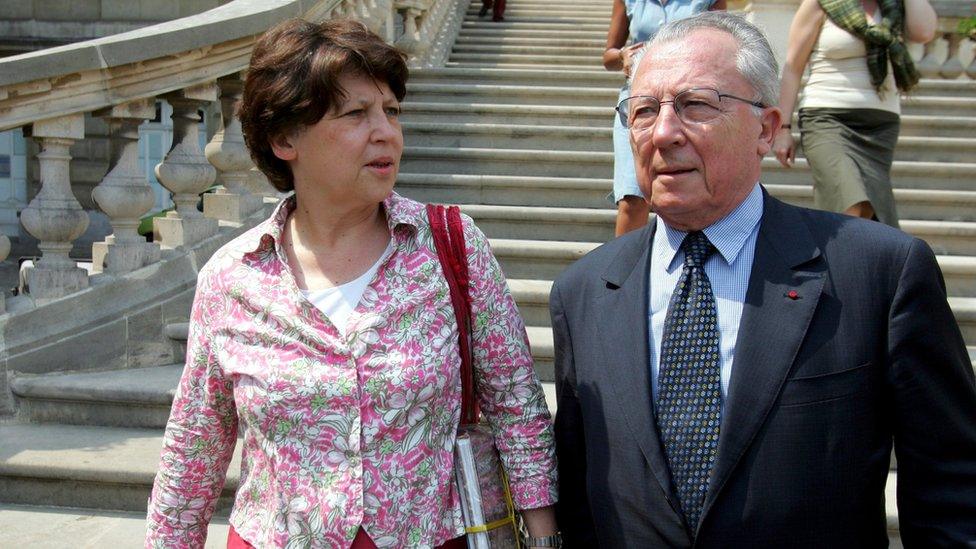
Jacques Delors with his daughter Martine Aubry
In 2004, he even seemed to accept that not every member state wished for ever further union. With economic problems mounting in the euro area, Delors said he could see why the UK had refused to join the single European currency.
"Since we (the EU) have not succeeded in maximising the economic advantages of the euro," he admitted, "one can understand the British saying 'Things are fine as they are. Staying out of the Euro hasn't stopped us prospering'."
In the run-up to the Brexit Referendum in 2016, there was a rumour that he wanted Britain to leave so that other member states could accelerate the process of integration.
"I consider the UK's participation in the European Union to be a positive element both for the British and for the Union," he insisted.
But days later the UK voted by a narrow margin to leave the European Union, and to seek an alternative relationship with its neighbours.
Jacques Delors will be remembered as a technocrat who had more influence than most elected politicians.
In the history of the European Union, no-one did more to shape its development according to his beliefs.
Delors hoped to create a powerful organisation capable of directing the political and economic decisions of its member states, in the interests of peace and unity. But his vision was not universally shared.